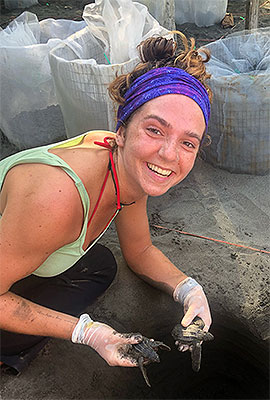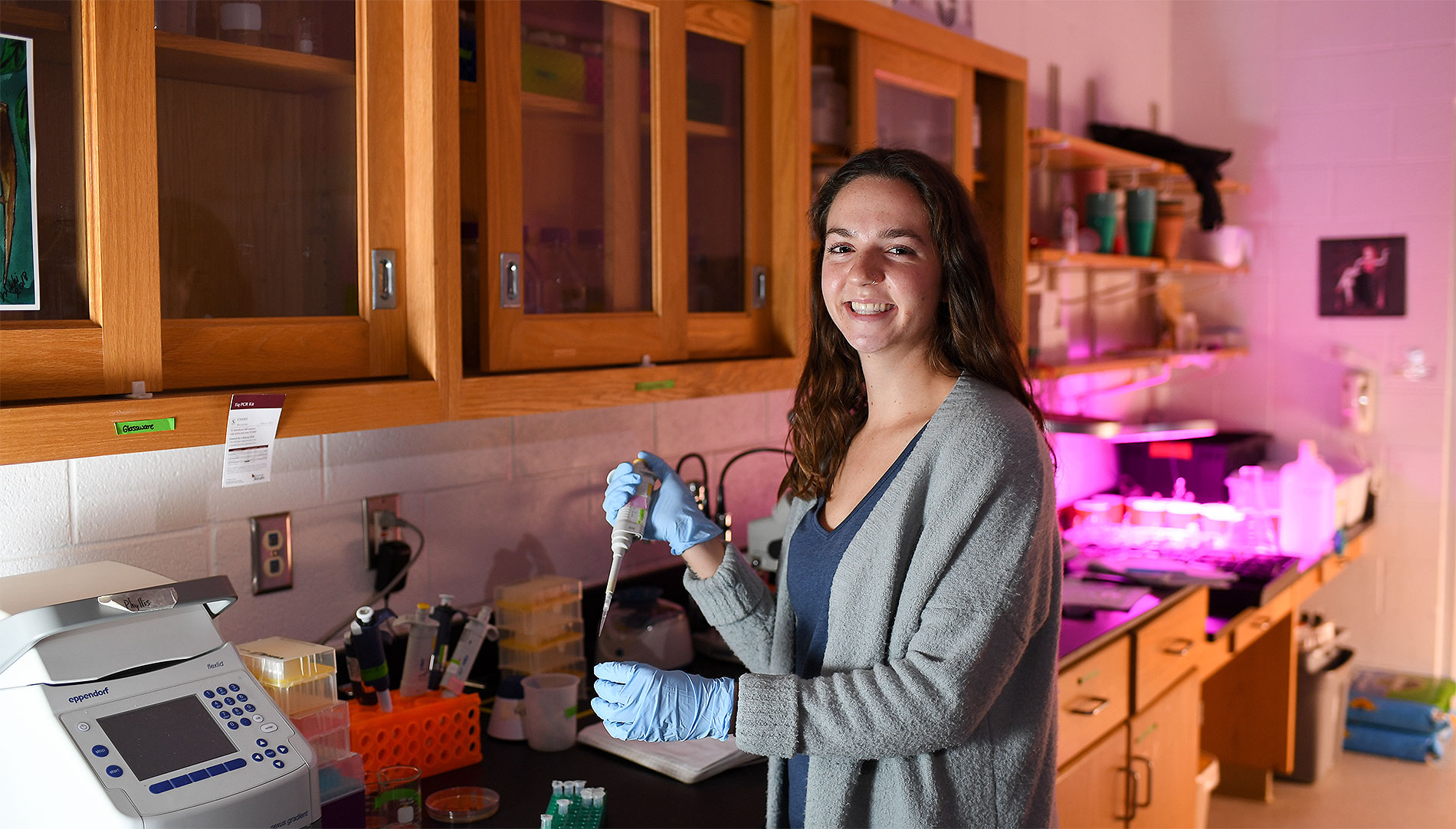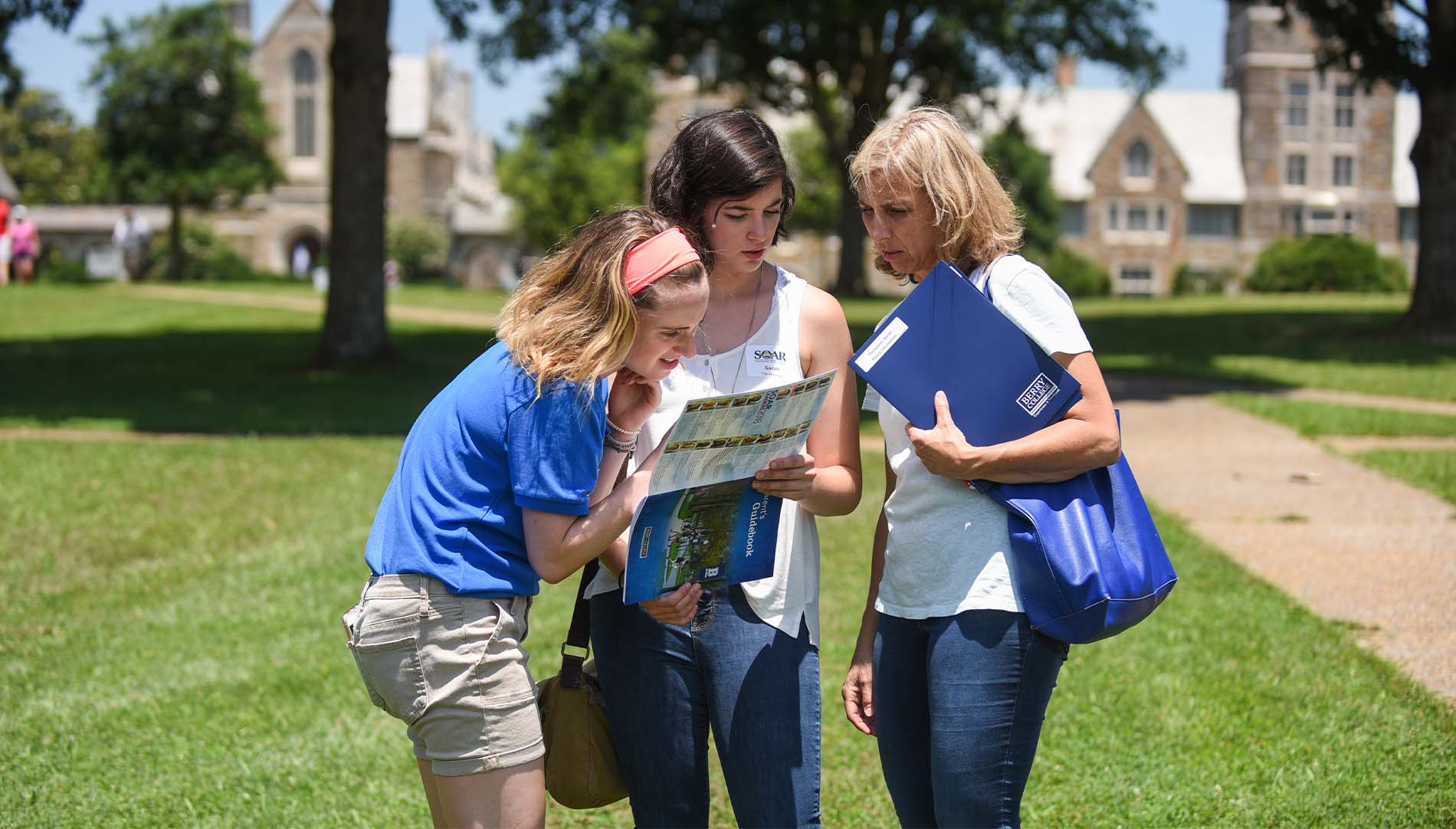
Emilie Davis ’21 set her sights on an animal science major, having grown up “with a zoo” in her backyard, from dogs, cats and alpacas to chickens, reptiles and rabbits. At the end of her first year at Berry, she signed up to volunteer for a sea turtle conservation organization in Costa Rica, and the experience spurred a decision to major in environmental science with a biology concentration and minor in animal science.
“Seeing firsthand the effect of climate change and pollution on such a beautiful yet critically endangered species was incredibly eye opening,” she says. “Not only did I work with the turtles and the local community, but I had the opportunity to make an even larger difference and help the locals clean their waterways and beaches.”
The time spent at the Pacuare Reserve in Matina, Limon, Costa Rica, kick-started Emilie’s interest in research. She started collecting data on the hatching rates of leatherback, hawksbill and green sea turtles. “Over the two weeks I started working with leatherback turtles, we had four nests hatch, but the hatching rates were horrible. Barely any babies survived the incubation period.”
Offered a staff position with a conservation organization for the following summer, Emilie returned to Berry with a vigor for environmental research. She connected with Professor Emeritus of Biology Bill Davin for guidance in investigating the low hatching rates.
From assisting with her first application for a research grant to helping her understand how to collect samples, Emilie says Davin helped lay the groundwork for her future research: “Dr. Davin took a girl who loved sea turtles and had an idea and transformed her into a scientist.”
Assistant Professor of Biology Caitlin Conn mentored Emilie step-by-step through the genetic research for the project while equipping her with the discipline needed to balance life in and out of the classroom. A master of time management, Emilie held student supervisory positions with Berry’s sports medicine department, worked as an assistant athletic trainer for the baseball team and participated in biweekly mentor meetings with the college’s Center for Integrity in Leadership.
With the goal of becoming a traveling wildlife veterinarian/surgeon, Emilie worked in Costa Rica as a research assistant during the leatherback turtle laying and hatching season. She later enrolled at Tufts University to pursue graduate studies in conservation medicine. “I hope to get a dual degree, including a Doctor of Veterinary Medicine in global veterinary health and a Master of Science in research focusing on wildlife conservation,” she says.
Written by junior Faythe Choate



